Share
Working at ESO
Are you interested in working in areas of frontline technology and in a stimulating international environment? Do you feel your profile matches our requirements? Learn more about our current vacancies and apply online. Read more..
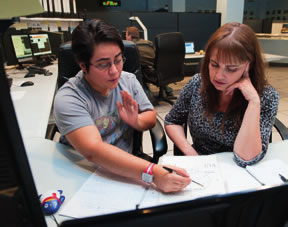
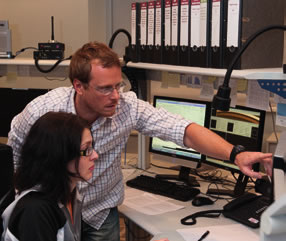

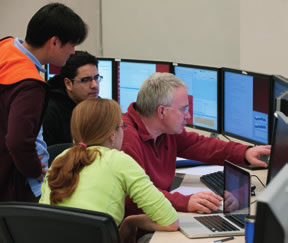
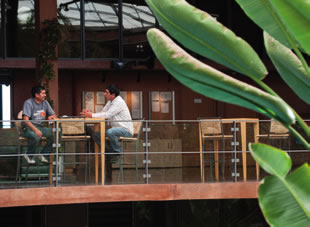
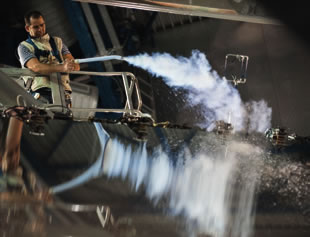
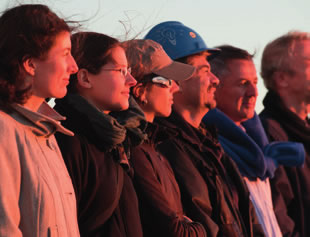
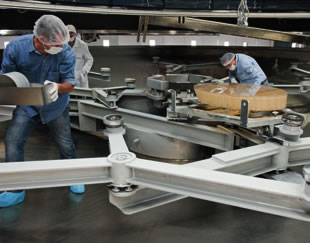
The European Organisation for Astronomical Research in the Southern Hemisphere (ESO) is the foremost intergovernmental astronomy organisation in Europe and the world's most productive ground-based astronomical observatory. ESO carries out an ambitious programme focused on the design, construction and operation of powerful ground-based observing facilities enabling astronomers to make important scientific discoveries. ESO operates three unique world-class observing sites in northern Chile: La Silla, Paranal and Chajnantor (home to ALMA and APEX), and the ESO Headquarters are located in Garching, near Munich, Germany. At Paranal, ESO operates the Very Large Telescope, the world's most advanced visible-light astronomical observatory. ESO is a major partner in ALMA, the largest astronomical project in existence. And on Cerro Armazones, ESO is building the 39-metre Extremely Large Telescope, which will become "the world's biggest eye on the sky" and whose operations will be fully integrated into the Paranal Observatory.
Within its Maintenance, Support and Engineering (MSE) Department at the Paranal Observatory, ESO is opening an International Staff member position as
Instrumentation Engineer
Paranal
Deadline 31/05/2018
The successful applicant will be part of the Instrumentation Group within the MSE Department. The MSE Department, with a workforce of 80 engineers and technicians, provides maintenance and technical support to the four 8m VLT telescopes, to the VLT Interferometer with its auxiliary telescopes, the VST and VISTA survey telescopes and to all instruments available for scientific observations. Astronomical instruments are large, complex facilities involving advanced technologies in the fields of optics, precision mechanics, electronics, cryogenics, detector acquisition systems and software .
The Instrumentation Group is comprised of 16 engineers, physicists and technicians and is responsible for all astronomical instruments at the Paranal Observatory. The group Is responsible for 'Maintien en Condition Operationelle' (MCO) of all (HW only) instruments (including sub-systems like MACAO, CIAO, VLTI Instruments , 4/LGSF), detector, clean room and opto-mechanical labs, technical equipment in New Integration Hall, interface and follow-up for new instruments (HW), and work package management of an outsourced support contract.
Main Duties and Responsibilities:
The successful candidate will:
As instrumentation engineer, have the technical responsibility of one or more instruments:
- Be responsible of all maintenance activities (corrective and planned) and obsolescence analysis.
- Ensure the availability of the instruments according to specification.
- Interact with the Instrument Scientist to assess the performance of the instruments.
- Organize with the Instrument Scientist the Instrument Operation Team meetings and coordinate activities with the Science Operations Department.
- Propose and implement change requests (analysis, design, implementation, commissioning, documentation)
- Interact with the instrument experts at ESO headquarters and with the Support and Quality Assurance group (planning, spare parts, maintenance plan optimization, documentation and quality control)
- Coordinate and supervise contractor activities in close coordination with the outsource contract manager.
As instrumentation engineer, support activities:
- Participate to the daily troubleshooting and corrective maintenance of instruments a required.
- Lead performance analysis and maintenance on instruments.
- Assembly Integration and Verification of new systems and ensure the transfer of knowledge from project to the dedicated team.
- Any critical Paranal observatory activities for which your competencies are requested by your manager.
- Operation roles as needed like Telescope Startup (TST) and/or Telescope Coordinator (TCO)
Reports to:
The Instrumentation Group Leader.
Experience:
The ideal candidate has at least three years of professional experience in one or more of these areas:
- The field of astronomical or scientific instrument development and operations, including optical analysis, by using a variety of engineering tools and standard methodologies
- Assembly, integration and verification of astronomical or scientific optical instrumentation.
Knowledge and theoretical/practical experience in at least two of the following domains will be an asset and should be described in the cover letter:
- Adaptive optics, laser guide star and deformable mirrors
- Optical design and analysis (optical quality and straylight)
- Optical alignment and verification
- Interferometry
- Spectroscopy
Key Competences:
- Ability to understand the 'big picture' and the details of complex systems, their interfaces, and their performance.
- Ability to trouble shoot and solve problems under difficult working conditions and with tight deadlines.
- Real interest to learn maintenance and trouble-shooting techniques.
- Having a fine grasp of practical work, in particular for optical alignment or AO calibration.
- Strong sense of team spirit with the ability to work effectively in a multi-national and multi-cultural environment.
- Good self-organization.
- Constructively suggest improvements to work processes.
- Plan effectively and monitor progress of work, deliver results on time and to standards.
Qualifications:
University degree in physics, optics, engineering or astronomy. Specialisation in the field of astronomical instrumentation and/or system engineering, or equivalent, is desirable.
Language Skills:
The position requires excellent oral and written communication skills in English.
Remuneration and Contract:
We offer an attractive remuneration package including a competitive salary (tax free), comprehensive pension scheme and medical, educational and other social benefits, as well as financial help in relocating your family. The contract is for a fixed term duration of three years, and is subject to successful completion of the probation period. There is a possibility of extension(s) subject to individual performance and organizational requirements, and as defined in the applicable policies and staff rules and regulations. For any further information, please visit http://www.eso.org/public/jobs/conditions/intstaff.
Duty Station:
Paranal Observatory, located 120 km south of the city of Antofagasta, Chile. The working schedule will be 8 days on duty and 6 days off duty (8x6) with accommodation provided on site, after a probation period with 5 days on duty and 2 days off (5x2).
Career Path:
V
Application:
If you are interested in working in areas of frontline technology and in a stimulating international environment, please visit http://www.eso.org for further details. Applicants are invited to apply online via our recruitment portal http://recruitment.eso.org/. Applications must be completed in English and should include a motivation letter and your CV.
Closing date for applications is 31 May 2018.
No nationality is in principle excluded however, recruitment preference will be given to nationals of Australia, Austria, Belgium, the Czech Republic, Denmark, Finland, France, Germany, Italy, the Netherlands, Poland, Portugal, Spain, Sweden, Switzerland and the United Kingdom irrespective of gender, age, disability, sexual orientation, race or religion.
